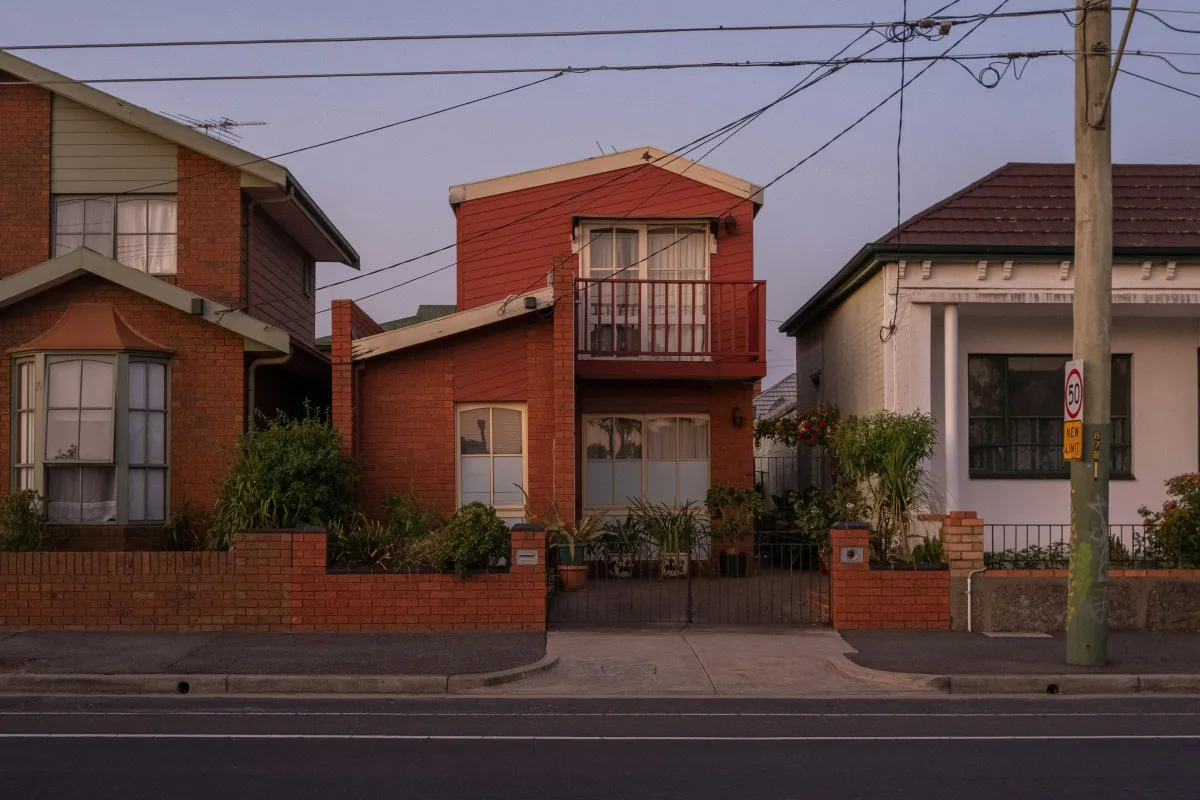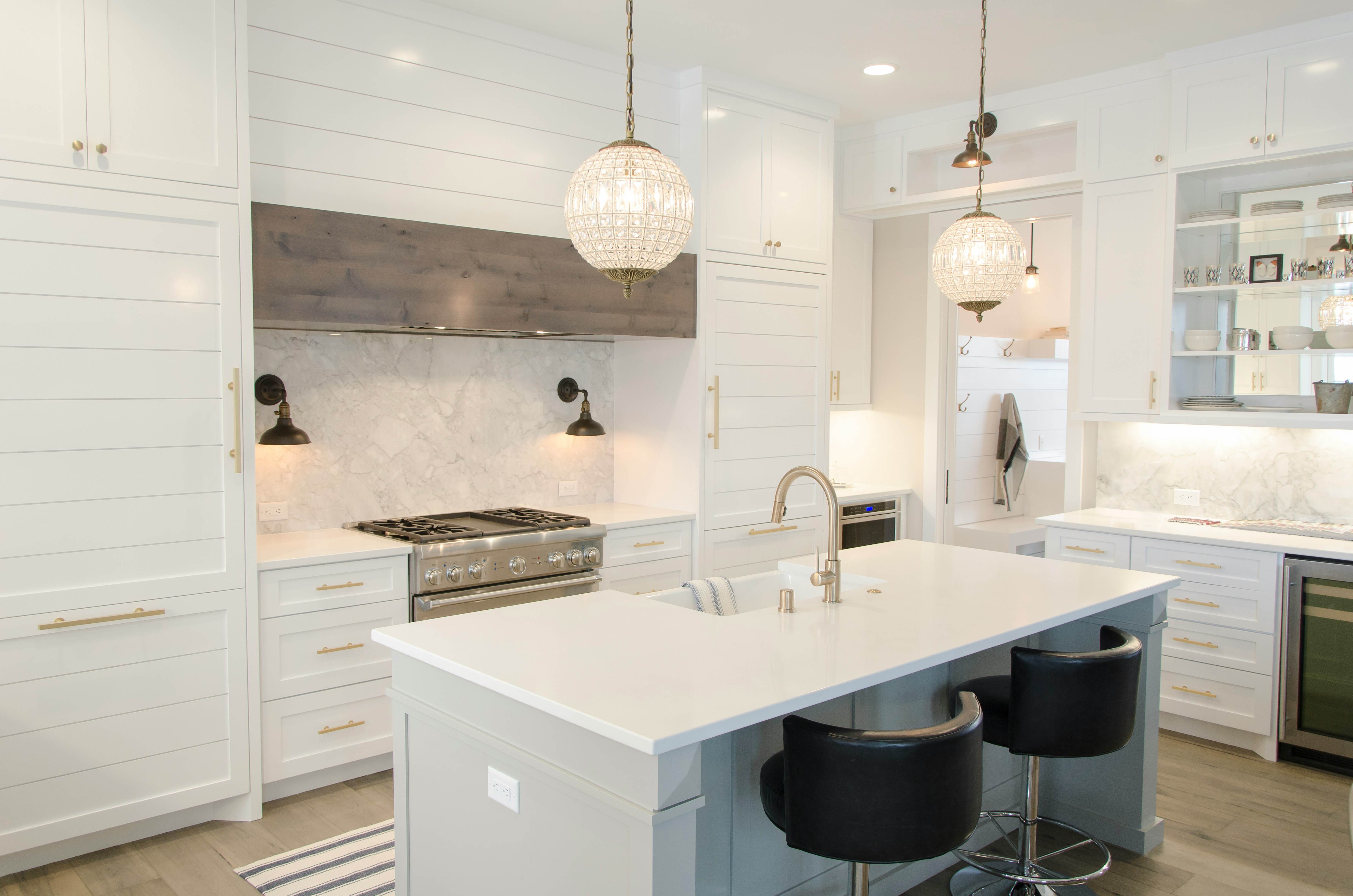
Neighborhood Impact on Resale: Custom vs. Existing Homes
When choosing a home, many buyers underestimate the influence of neighborhood characteristics on resale value. Understanding how these traits affect custom-built homes compared to existing properties can help make informed decisions. This article will explore key factors like economic trends, buyer perception, and legal aspects that impact resale values. By reading this post, homebuyers and property owners will gain valuable insights into maximizing their investment and navigating the complex housing market. Ultimately, this content addresses the challenge of selecting the right home while ensuring long-term value.
Key Takeaways
Neighborhood characteristics like location, safety, and schools play a major role in determining property resale values.
Custom-built homes offer unique features that appeal to specific buyer preferences, influencing their market value.
Local amenities, such as parks and shopping centers, enhance property value and attractiveness to potential buyers.
Community reputation and social dynamics significantly impact resale potential and market demand.
Neighborhood trends, including growth and economic development, directly affect home prices and investment stability.
Understanding Neighborhood Characteristics That Influence Property Resale Values

Location plays a crucial role in determining property resale values. Analyzing local amenities reveals how features like parks and shopping centers enhance home appeal. Community safety significantly impacts prices, while school districts are essential for families making housing decisions. Tracking neighborhood trends and understanding supply and demand helps gauge market movement and property values amidst inflation. Statistics can offer valuable insights into these factors.
Assessing the Role of Location in Property Value
Location significantly influences property value, especially when considering custom-built homes versus existing properties. Homes in desirable neighborhoods often build equity more quickly, making them attractive to buyers and landlords alike. During a recession, properties in areas with good schools, parks, and sustainable community practices tend to hold value better, providing security for homeowners and investors alike.
Analyzing Local Amenities and Their Impact on Resale
Local amenities play a vital role in determining the resale value of both custom-built homes and existing properties. Access to parks, shopping centers, and restaurants can enhance a neighborhood's appeal, turning it into a valuable asset for homeowners. Economists note that areas with higher occupancy rates and low rates of homelessness often see an increase in gross income levels, which positively affects property values.
Importance of local amenities in property value.
Connection between community features and market demand.
How neighborhood safety and schools influence buyer decisions.
Exploring Community Safety and Its Effects on Home Prices
Community safety is a critical factor that directly affects home prices in any neighborhood. Research shows that areas with low crime rates and a strong sense of safety tend to attract more buyers, making them ideal for both custom-built homes and existing properties. Investors often consider the influence of community safety on property values when planning procurement strategies, particularly in neighborhoods near Section 8 housing, where concerns may arise regarding poverty and its effects on demand.
Low crime rates elevate attractiveness for buyers.
Investors assess safety alongside property value potential.
Neighborhood dynamics and Section 8 housing impact resale values.
Evaluating School Districts and Their Significance for Families
School districts play a significant role in the decision-making process for homebuyers, impacting property resale values considerably. Research indicates that homes located in areas with highly-rated schools often see a higher percentage of appreciation, which attracts families looking for long-term stability. The economist suggests that access to quality education is a vital consideration, especially in neighborhoods near condominiums or other types of housing where affordability becomes a factor, as families may seek out any available subsidy for educational expenses.
Investigating Neighborhood Trends and Market Demand
Understanding neighborhood trends is essential in determining the resale value of both custom-built homes and existing properties. Sales prices can fluctuate based on interest rates and the overall market demand, which estate agents track through resources like the multiple listing service. Homebuyers should pay close attention to these trends and how they can impact their investment, especially in shifting markets where property prices may rise or fall.
Neighborhood trends directly affect property values.
Interest rates influence buyer affordability and sales prices.
Estate agents utilize multiple listing service data for market insights.
Comparing Custom-Built Homes and Existing Properties in Various Neighborhoods

Custom-built homes offer unique features that can enhance their appeal and value, making them attractive in various markets. In contrast, existing properties often hold steady resale value due to established neighborhood characteristics. Buyer preferences can vary, impacting demand based on income and credit situations. The architectural style also plays a role in revenue generation, as different designs resonate differently across neighborhoods. Case studies will illustrate these dynamics, showcasing how neighborhood factors affect property sales.
Unique Features of Custom-Built Homes and Their Value Proposition
Custom-built homes offer distinct features that can significantly impact their market value, particularly within desirable neighborhoods. These properties often reflect the specific needs and preferences of the homeowner, incorporating modern laws and policies that enhance quality and sustainability. For instance, a program that promotes energy-efficient designs may appeal to buyers looking for both comfort and long-term savings, making such homes more attractive in a competitive market.
Unique design tailored to individual preferences enhances appeal.
Compliance with modern laws increases property value.
Energy-efficient features attract eco-conscious buyers.
Neighborhood characteristics influence market demand for custom properties.
How Existing Properties Measure Up in Value Retention
Existing properties tend to maintain strong value retention thanks to factors like community trust and neighborhood characteristics. For example, homes with multiple bedrooms in areas where residents have higher incomes, as shown by the American Community Survey, generally experience stable demand. While newer homes may draw initial interest, older homes in desirable locations often provide reassurance to buyers looking for long-term investments. In summary, community trust, income levels, bedroom count, and established neighborhoods all play significant roles in influencing property values.
Understanding Buyer Preferences for Custom Builds vs. Existing Homes
Buyer preferences for custom builds versus existing homes often stem from individual needs and financial considerations. Many look to custom construction to achieve personalized features that align with their lifestyle, while others favor existing properties for their established value and potential for affordable housing. Real estate agents often emphasize that understanding local market trends and buyer motivations is critical for successful transactions in neighborhoods that can influence speculation on future property value.
Impact of Architectural Styles on Resale Value in Different Neighborhoods
Architectural styles significantly impact the resale value of homes in various neighborhoods. Custom-built homes designed with trendy and appealing aesthetics can attract buyers who appreciate a unique ownership experience, potentially leading to a higher market price. In contrast, existing properties may maintain value due to their classic designs that have stood the test of time, but they might also incur specific property tax rates based on their style and location. Homebuyer assistance programs may favor certain architectural features, making them more attractive to prospective buyers who want a solid investment, while considerations such as a potential lawsuit over neighborhood aesthetic compliance can also influence decision-making in the buying process.
The Economic Factors at Play in Neighborhood Resale Values

Local market trends significantly impact resale values, guiding both custom-built and existing properties. Analyzing neighborhood demographics reveals their economic contributions and how they drive demand. Economic development projects can enhance property values while understanding tax rates is essential for assessing resale potential. Lastly, neighborhood growth often correlates with rising home prices, all of which will be explored in depth.
Examining Local Market Trends and Their Implications
Local market trends play a critical role in determining property resale values for both custom-built homes and existing properties. Factors such as interest rates, local job growth, and economic stability can significantly influence buyer demand and pricing strategies. For instance, a neighborhood experiencing job growth may attract more families, thereby boosting home values as buyers seek long-term stability in their investments.
Neighborhood Demographics and Their Economic Contributions
Neighborhood demographics play a significant role in shaping property resale values for both custom-built homes and existing properties. Areas with growing populations often witness a surge in demand as buyers look for communities that offer a vibrant environment and strong economic opportunities. Additionally, neighborhoods characterized by higher income levels typically experience greater stability in home values, making them attractive investments for homebuyers looking for a solid financial return.
The Influence of Economic Development Projects on Property Value
Economic development projects play a significant role in shaping property values within neighborhoods. For instance, when a city invests in infrastructure improvements, such as new roads or public transportation, it often leads to an increase in accessibility and overall appeal, positively influencing home prices. Buyers tend to be drawn to areas that showcase growth and investment, making properties—both custom-built and existing—more desirable and likely to appreciate in value as the neighborhood evolves.
Understanding Tax Rates and Their Effects on Resale Potential
Tax rates significantly impact resale potential for both custom-built homes and existing properties. Higher tax rates can deter potential buyers, as they influence overall affordability and ongoing costs associated with homeownership. In neighborhoods with favorable tax structures, buyers are often more inclined to invest, leading to greater demand and potentially higher property values over time.
The Relationship Between Neighborhood Growth and Home Prices
The relationship between neighborhood growth and home prices is significant, as expanding communities often attract new families looking for housing. When a neighborhood experiences growth, it frequently leads to increased demand for both custom-built homes and existing properties, driving up their resale values. For example, in areas where new schools or businesses open, property owners may see not only a rise in prices but also a heightened interest from potential buyers seeking homes in a thriving environment.
The Psychological Impact of Neighborhood Perception on Home Buyers

First impressions of a neighborhood can significantly impact buyer decisions. The local culture greatly influences how potential homeowners perceive the area, while neighborhood reputation shapes property valuation. Social dynamics, including interactions among residents, affect resale capacity. Additionally, online reviews and social media play a vital role in guiding buyers' choices, as these platforms can highlight both the strengths and weaknesses of a community.
The Power of First Impressions in Neighborhoods
First impressions of a neighborhood play a significant role in assessing the resale value of both custom-built homes and existing properties. Buyers often judge a community based on factors like the cleanliness of streets, the presence of well-maintained landscaping, and the overall ambiance of the area. A neighborhood with clean streets, thriving vegetation, and appealing parks can create a positive first impression, which can increase demand and perceived value.
Additionally, a friendly atmosphere and community engagement foster a sense of belonging, making the area more desirable. These elements directly influence home prices, making neighborhoods with inviting features more likely to attract buyers and maintain or increase property values.
How Community Culture Influences Buyer Decisions
Community culture plays a significant role in influencing buyer decisions when it comes to purchasing homes. Prospective homeowners often look for neighborhoods that foster a sense of belonging and engagement. Areas with active community events, neighborly interactions, and cultural vibrancy can attract buyers who prioritize lifestyle, making both custom-built homes and existing properties more desirable investments.
The Role of Neighborhood Reputation in Property Valuation
The reputation of a neighborhood plays a crucial role in determining property valuation, significantly influencing buyers' perceptions of both custom-built homes and existing properties. An area known for its safety, community engagement, and strong schools tends to attract more interest, driving up demand and property prices. Buyers often seek assurances that their investment will appreciate, and a favorable neighborhood reputation provides that confidence, making it essential for homeowners and investors to understand its impact on resale value.
Social Dynamics and Their Effects on Resale Capacity
Social dynamics within a neighborhood can significantly influence the resale capacity of both custom-built homes and existing properties. A strong sense of community, characterized by friendly interactions and neighborly support, can create a welcoming environment that attracts potential buyers. For instance, neighborhoods that host regular community events or have active local groups often see increased property demand, leading to higher resale values as buyers seek a sense of belonging and security in their investments.
Conclusion
Choosing a home involves more than just the structure itself—neighborhood characteristics play a critical role in determining long-term property value. Whether you’re considering a custom-built home or an existing property, factors like location, safety, local amenities, and school districts can significantly influence resale potential. Additionally, community reputation and local trends provide insight into how your investment will appreciate over time. Understanding these dynamics helps homebuyers and property owners make informed decisions that ensure lasting value and satisfaction.


